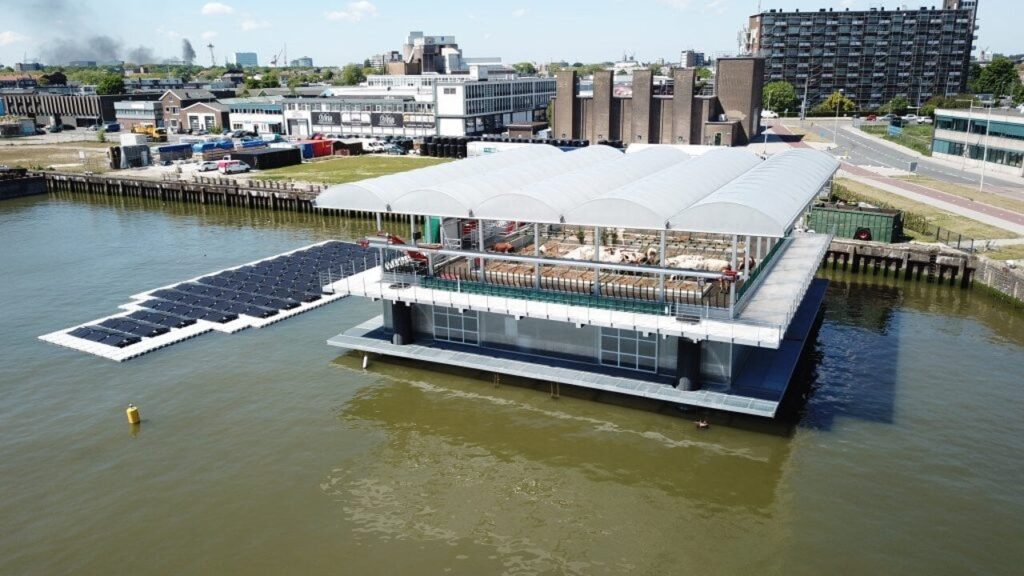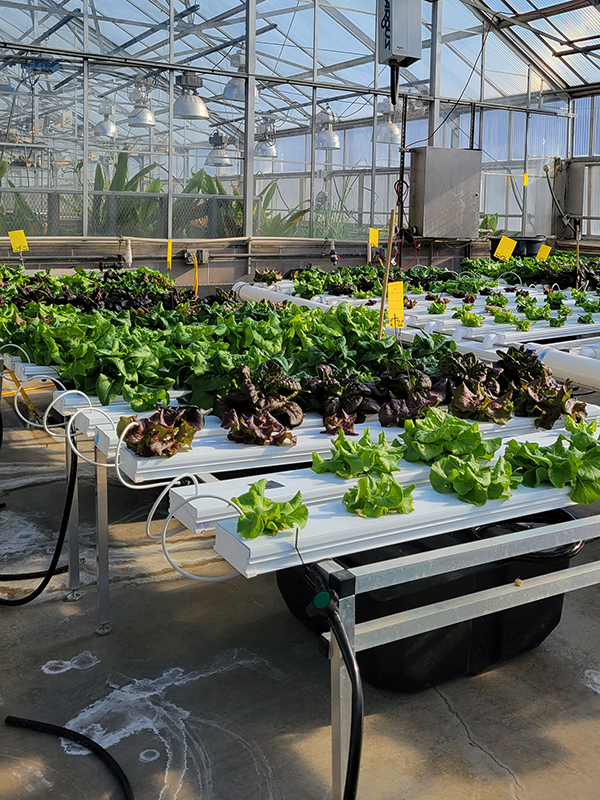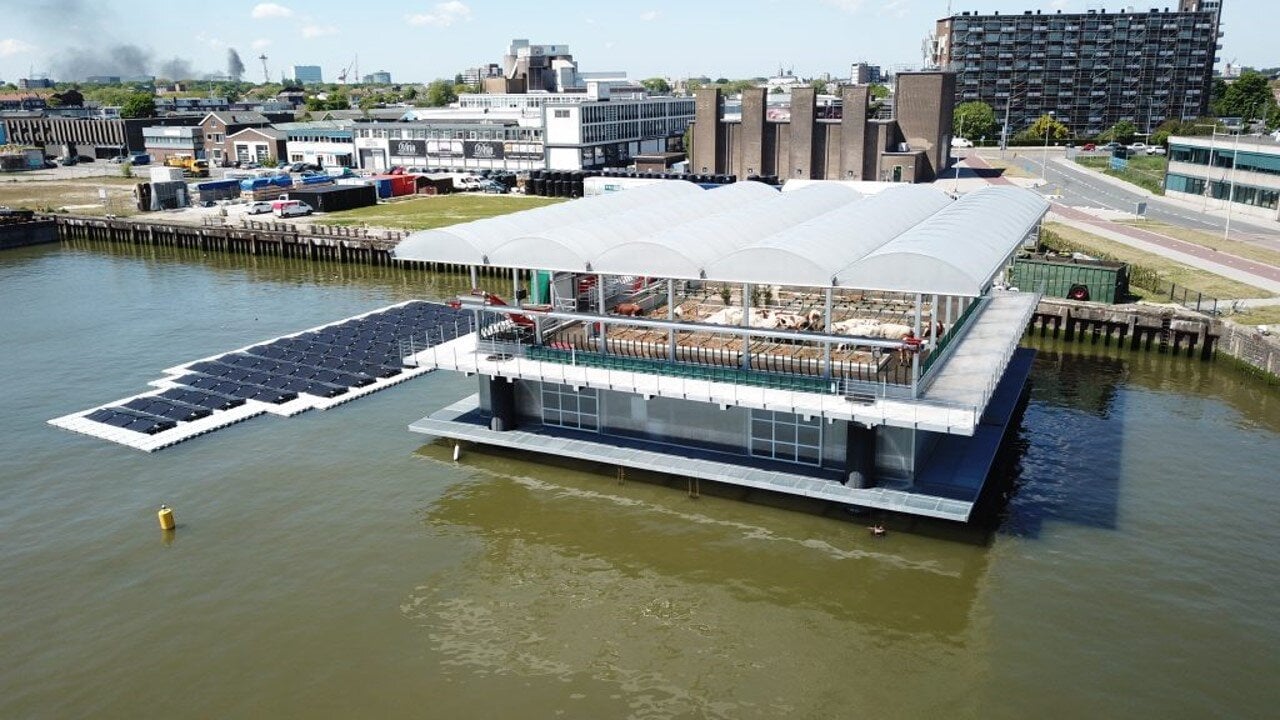Rotterdam has become the site of an innovative agricultural experiment with the opening of the world’s first floating farm, designed to address urban food shortages and promote sustainable farming practices.

A Revolutionary Concept
In a bold step towards sustainable agriculture, Rotterdam has unveiled the world’s first floating farm. The state-of-the-art facility, built on a series of interconnected floating platforms, is designed to grow fresh produce and raise livestock in the heart of the city’s harbor.
The floating farm aims to address urban food security by producing food locally, reducing the need for transportation and associated carbon emissions. It features innovative technologies, including hydroponic systems for growing vegetables and aquaponics for raising fish and growing plants together in a closed-loop system.
“We’re excited to see this concept become a reality,” said project leader Janine van der Meer. “The floating farm represents a significant step forward in urban agriculture and sustainability.”
Innovative Farming Techniques
The floating farm is equipped with advanced farming techniques to optimize space and resources. Hydroponic systems allow for efficient, soil-free cultivation of vegetables like lettuce, herbs, and tomatoes, while aquaponics integrates fish farming with plant cultivation. Waste from the fish provides nutrients for the plants, and the plants help to filter the water for the fish.

Additionally, the facility includes a section for raising chickens and dairy cows, contributing to a diverse range of locally-produced food. The design ensures that the farm is resilient to climate changes and rising sea levels, making it a model for future urban agriculture projects.
Environmental and Social Impact
The floating farm addresses several pressing issues, including the need for sustainable food production and the challenges of urbanization. By producing food locally, it reduces the carbon footprint associated with transportation and helps to alleviate food shortages in urban areas.
“Urban farms like this one are crucial for the future of sustainable living,” said environmental scientist Dr. Lars Jensen. “They not only help to reduce emissions but also provide fresh, healthy food to city residents.”
The project also aims to engage the local community through educational programs and public tours, raising awareness about sustainable agriculture and the benefits of local food production.
Future Plans
The success of the floating farm in Rotterdam could pave the way for similar projects in other cities around the world. Plans are already underway to expand the facility and explore new technologies to enhance its efficiency and productivity.
“We’re hopeful that this project will inspire other cities to explore floating farms and other innovative solutions for urban agriculture,” van der Meer added. “It’s an exciting time for sustainable development and food security.”
Conclusion
The opening of the world’s first floating farm in Rotterdam marks a significant milestone in the quest for sustainable and resilient urban agriculture. With its cutting-edge technologies and commitment to reducing environmental impact, the floating farm sets a new standard for how cities can approach food production and sustainability.
Stay tuned to unbelievable.lol for more updates on this groundbreaking project and other extraordinary developments from around the world. Because sometimes, the most inspiring stories are those that lead us to a better future.

